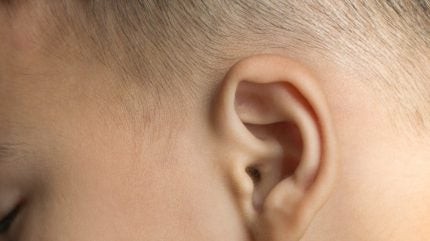

Sensorion has secured €14.8m ($16m) from its investors to advance its gene therapy programmes for the treatment of deafness and hearing loss disorders.
The capital raise, via the issuance of 24,574,694 shares to existing shareholders, extends the biotech’s cash runway until the end of next year.

Discover B2B Marketing That Performs
Combine business intelligence and editorial excellence to reach engaged professionals across 36 leading media platforms.
The offering is expected to close around 11 April, adding to the private placements of $54m in February 2024 and $38.3m from August 2023.
The France-based biotech stated that the funds will go towards its clinical-stage gene therapy assets indicated for patients with deafness, covering research and development activities through 2025.
At the helm of Sensorion’s pipeline is SENS-501, an adeno-associated virus (AAV) gene therapy candidate that was approved to start a European Phase I/II clinical trial in January.
The biotech said the funds will support the enrolment of the first two cohorts in the trial. The study, called Audiogene, will assess the safety, tolerability, and efficacy of SENS-501 via intra-cochlear injection in paediatric patients with hearing loss.

US Tariffs are shifting - will you react or anticipate?
Don’t let policy changes catch you off guard. Stay proactive with real-time data and expert analysis.
By GlobalDataSensorion is targeting patients with mutations in the gene coding for otoferlin protein – responsible, amongst other genes, for congenital deafness.
A Sensorion spokesperson told Pharmaceutical Technology that the first results from Audiogene are expected in the second half of 2024.
Also standing to benefit from the financing is the biotech’s second clinical programme for GJB2-GT, a gene therapy designed to restore hearing in those with mutations in the GJB2 gene. This gene encodes for gap junction beta-2 protein, mutated versions of which can cause childhood deafness. Sensorion expects to submit a clinical trial application for the drug in the first half of 2025.
There are currently no approved gene therapies to restore hearing in adults or children, though the research space is ramping up. In January 2024, Eli Lilly subsidiary Akouos reported positive initial data from a Phase I/II trial investigating its gene therapy AK-OTOF for genetic hearing loss. AK-OTOF is also an AAV gene therapy designed to restore hearing in patients with otoferlin gene mutations.
In the same month, a study co-led by Harvard Medical School and Fudan University’s Eye & ENT Hospital in China showed promise with a gene therapy in the same patient population. In February, a gene therapy developed at Italy’s TIGEM Telethon Institute of Genetics and Medicine was used to treat a patient with deafness in the US, as reported by Nature Italy.
Gene therapies are gaining regulatory traction, with 2023 seeing the highest number of approved treatments in the past decade. The global market value of AAV therapies is expected to reach $22.3bn in 2029, up from $1.5bn in 2023, according to analysis by GlobalData.
GlobalData is the parent company of Pharmaceutical Technology.
Cell & Gene Therapy coverage on Pharmaceutical Technology is supported by Cytiva.
Editorial content is independently produced and follows the highest standards of journalistic integrity. Topic sponsors are not involved in the creation of editorial content.




